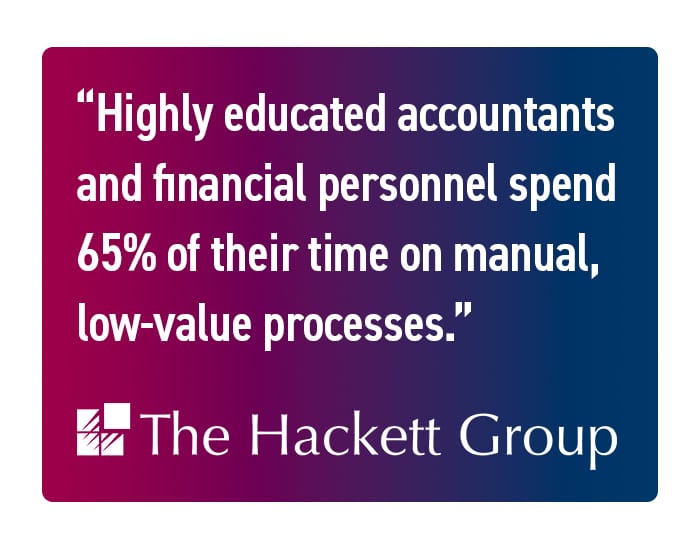Get Your Evenings Back with an Automated Financial Close
Blog post
Share
“It’s not what I know that keeps me up at night, it’s what I don’t know and the impact it could have on our business.”
As organizational environments increasingly become more complex, compliance-focused and technology-driven, CFOs and controllers have even greater pressure to ensure the integrity of the financial close. It’s easy to say, “That won’t happen to us,” but failures in the close process result in, at best, time consuming rework and at worst, materiality issues that can lead to misstatements, restatements, decreased valuations and maybe even personal liability. With these rising risks, many executives experience sleepless nights as they lie awake worrying about the accuracy of the numbers they are required to sign off on.
However, they aren’t the only ones losing sleep at night. Too often, bottlenecks in the financial close, typically caused by disparate processes and inadequate technology, lead to accountants spending countless hours at night buried in spreadsheets as they manually try to deliver the numbers at month-end. In a recent study, The Hackett Group stated, “Highly educated accountants and financial personnel spend 65% of their time on manual, low-value processes.” This is essentially work that brings no value to the business and work they shouldn’t be having to do. So, what’s the solution to these late nights? Automation.
Too often, bottlenecks in the financial close, typically caused by disparate processes and inadequate technology, lead to accountants spending countless hours at night buried in spreadsheets as they manually try to deliver the numbers at month-end. In a recent study, The Hackett Group stated, “Highly educated accountants and financial personnel spend 65% of their time on manual, low-value processes.” This is essentially work that brings no value to the business and work they shouldn’t be having to do. So, what’s the solution to these late nights? Automation.
With Trintech’s automated solutions, finance executives can succeed in today’s constantly changing marketplace by exhibiting controlled agility – “controlled” to ensure the highest level of data accuracy and integrity in financial close data, and “agility” to adapt to and meet organizational changes that mitigate risk. According to The Hackett Group, finance departments are seeing significant results from the increased sophistication of robotics and automation tools, with labor and outsourcing costs being cut by 20%-35%.
Trintech’s solutions automate the financial close, optimizing the process so that accountants can go beyond balancing the workload and eliminating manual work to analyzing the data and applying creative intelligence to tasks such as problem solving and evolving the business. This not only delivers improved value to the business, but is also the type of high-value work most likely to attract and retain high quality accountants.
Furthermore, an effective controls framework underpins the whole financial process and by unifying all key control components, it enables a clear audit trail for compliance initiatives. To drive further efficiencies, automation can be utilized not only to lower costs and reduce errors but also to improve compliance by inspecting, automating and triggering remediation. This provides organizations with a way to achieve better financial governance overall.

So, whether you sit at the executive or end user level, a financial automation solution will help ensure an efficient and effective financial close – giving everyone the good night’s sleep they deserve.
For more information on how an automated financial close solution can help your finance organization, download our Sanofi case study.
Written by: Chelsea Downey


